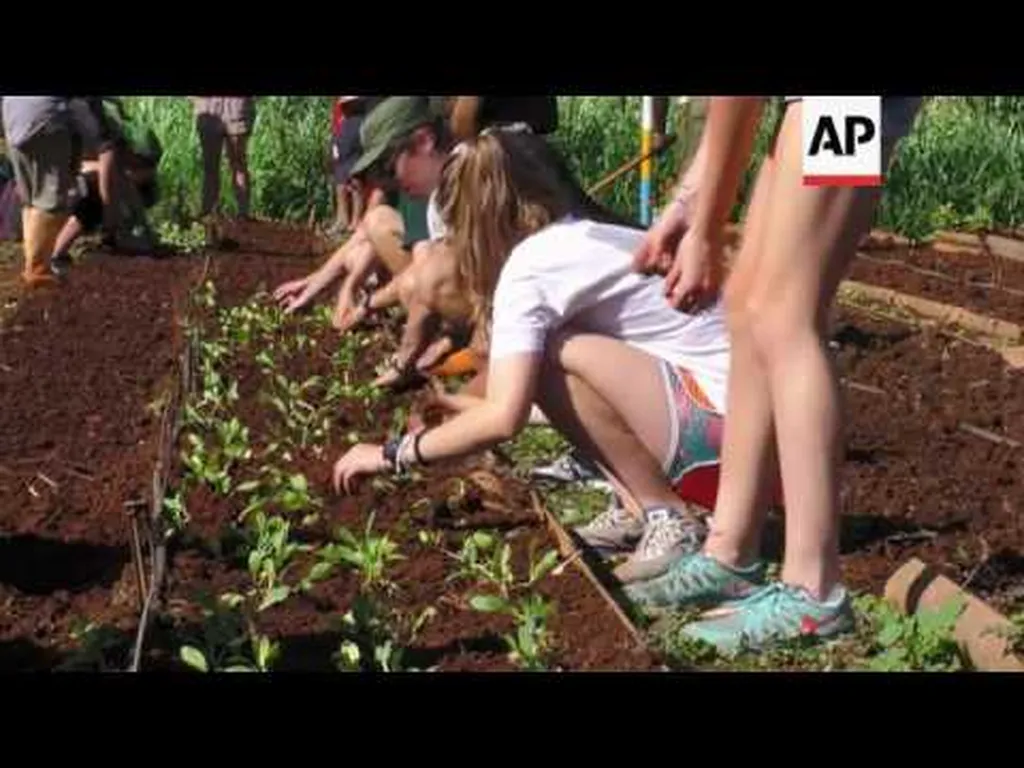In the heart of Indonesia, a quiet revolution is taking root, one that could redefine the future of sustainable tourism and organic farming. Lubuk Bayas, a village known for its lush landscapes and organic farming practices, is emerging as a beacon of hope for eco-conscious travelers and environmental educators alike. A recent study published in the *Journal of Global Innovations in Agricultural Sciences* (translated from Indonesian as *Journal of Global Innovations in Agricultural Sciences*) explores how Lubuk Bayas can transform into a thriving hub for organic farming-based ecotourism, blending education, sustainability, and community development.
Led by Ihsan Effendi, the research delves into the intricate balance between environmental stewardship, educational outreach, and the allure of social experiences that draw tourists to such destinations. “Environmental and educational values are crucial, but they often take a backseat to the immediate gratification and social interactions that tourists seek,” Effendi explains. This insight is pivotal, as it underscores the need to craft experiences that are not only informative but also engaging and emotionally resonant.
The study highlights that while environmental and educational values are foundational, they must be woven into the fabric of social experiences to captivate a broader audience. “Tourists are looking for fun, interactive activities that leave a lasting impression,” Effendi notes. By integrating these elements, Lubuk Bayas can create a compelling narrative that attracts visitors while fostering sustainable practices.
The research identifies key indicators of visitor intention and behavior, such as interest in visiting, participation in local activities, and willingness to recommend the village. These factors are essential for building a resilient ecotourism model that benefits both the environment and the local community. The study also emphasizes the importance of infrastructure planning, community involvement, and environmental impact assessments to ensure the long-term success of such initiatives.
For the energy sector, this research offers a blueprint for integrating sustainable practices into tourism, a sector that is increasingly under scrutiny for its environmental footprint. By showcasing how organic farming and ecotourism can coexist, Lubuk Bayas sets a precedent for other regions looking to diversify their economic base while promoting environmental conservation.
As the world grapples with the challenges of climate change and sustainable development, the lessons from Lubuk Bayas could inspire similar initiatives globally. The study’s findings suggest that the future of ecotourism lies in creating experiences that are not only educational but also deeply engaging and socially fulfilling. By doing so, destinations like Lubuk Bayas can attract a wider audience, fostering a deeper connection between tourists and the environment.
In the broader context, this research could shape the future of sustainable tourism, demonstrating that economic growth and environmental preservation are not mutually exclusive. As more destinations follow Lubuk Bayas’ lead, the global tourism industry could witness a shift towards more sustainable and community-centric models. This transformation would not only benefit the environment but also empower local communities, creating a ripple effect that resonates far beyond the boundaries of Lubuk Bayas.
As the world continues to seek innovative solutions to the challenges of sustainability, the story of Lubuk Bayas serves as a testament to the power of community-driven initiatives. By embracing the principles outlined in this research, the village is poised to become a model for sustainable tourism, inspiring similar efforts worldwide. The journey of Lubuk Bayas is just beginning, and its potential to influence the future of ecotourism is immense.

